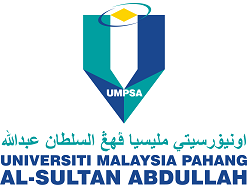Ethics and Integrity in a Public Sector Organisation in Malaysia: An Assessment of Understanding and Perception of the Employees
DOI:
https://doi.org/10.15282/jgi.5.3.2022.7442Keywords:
Public sector organisation, Level of Ethics and Integrity, Corporate Integrity Assessment QuestionnaireAbstract
The formation of quality work culture in the organization will only be achieved if employees practice a comprehensive and positive work ethic and integrity. In order to improve the level of ethics and integrity, the focus should be on overall improvement in the organization not only at the grassroots but all up to the top level. Comprehensive involvement of all parties will significantly improve the integrity of the organization. Recognizing the importance of integrity as the core of quality staff development and higher organizational performance, this study is expected to help the public sector organization plan strategies to achieve a higher level of ethics and integrity. The corporate Integrity Assessment Questionnaire (CIAQ) was used to measure the implementation of the integrity system in a public sector organization. The questionnaires were distributed to 850 employees at the agency via e-survey. It was found that the level of ethics and integrity of the agency is at 74%. “Vision and goals” dimension shows the highest score which shows that the organization has given attention to ethics and integrity through its approach to ethics and integrity in the organization, including, its formal articulation of the underlying philosophy about ethical and moral conduct embedded by the organization. The lowest score of the “disciplinary action and reward” dimension indicates that the public sector organization needs to relook policies and guidelines for discipline and reward so that it is in line with best practice. Thus, the public sector organization needs to provide rewards and incentives to encourage ethical conduct and implement strict disciplinary action to punish unethical work conduct improve in terms of ethical communication, work culture, infrastructure, training and ethics education, discipline, and reward.
References
Al-Maududi, AA. (1967). Islamic Way of Life. Karachi: Islamic Research Academy
Berita Harian Online. (2022). Penjawat awam perlu perkukuh integriti bendung rasuah. Retrieved from https://www.bharian.com.my/kolumnis/2021/04/807979/penjawat-awam-perlu-perkukuh-integriti-bendung-rasuah
Bywater-Schulze, A. (2019). Integrity in the public sector-A new professionals' perspective. Public Sector, 42(2), 21-22
Dubinsky, JE, & Richter, A. (2009). Global Ethics and Integrity Benchmarks. The Carnegie Council.
Governance Integrity Anti-Corruption Centre (GIACC). (2019). National Anti-Corruption Plan (NACP) 2019-2023. Retrieved: http://integrity.my/giacc/wp-content/upliads/2019/01 National-Anti-Corruption-Plan-2019-2013. pdf
Ismail, R., Ngah, N. E., Hassan, I., Abdullah, T., & Salleh, A. (2011). The Perception of Integrity of Three Public Agencies in Kuala Terengganu. World Applied Sciences Journal, 12(Special Issue), 60–63
Malaysian Institute of Integrity. (2007). The National Integrity Plan of Malaysia. Kuala Lumpur, Malaysia: Malaysian Institute of Integrity Retrieved from http://unpan1.un.org/intradoc/groups/public/documents/apcity/unpan047847.pdf
Malaysian Institute of Integrity. (2010). Corporate Integrity Assessment Questionnaire (CIAQ). Kuala Lumpur, Malaysia: Malaysian Institute of Integrity Retrieved from http://unpan1.un.org/intradoc/groups/public/documents/apcity/unpan047847.pdf
Malaysian Institute of Integrity. (2014). Corporate Integrity Assessment in XYZ Organization. Kuala Lumpur, Malaysia: Malaysian Institute of Integrity
Megat Ayop Megat Arifin , Abd. Halim Ahmad. (2016). Kepentingan budaya integriti dan etika kerja dalam organisasi di Malaysia: Suatu tinjauan umum. GEOGRAFIA Online Malaysian Journal of Society and Space, 12 issue 9 (138 - 149) 138 © 2016, ISSN 2180-2491
Muhammad Mohan. Malaysia drops 5 rungs in annual global corruption index (FMT, 25 January 2022). Accessed on 1 February, 2022 from https://www.freemalaysiatoday.com/category/nation/2022/01/25/malaysia-drops-5-points-in-annual-global-corruption-index/
Sajari, A., Haron., & Ismail., I. (2017). Effectiveness of Quality of Chief Integrity Officer, Ethical Climate on the Level of Ethics and Integrity in the Malaysian Federal. Journal of Governance and Integrity (JGI). ISSN: 2600-7479 e-ISSN: 2600-786X. VOL. 3, ISSUE 1, 50 – 68. DOI: https://doi.org/10.15282/jgi.3.1.2019.5422
Said., J, & Omar., N. (2014). Corporate Integrity System: Comparative Analysis of Two Giant Government Linked Companies. Peer-Review under responsibility of the Accounting Research Institute, UiTM. Available online at www.sciencedirect.com. Accessed on 1 January 2022 from Corporate Integrity System: Comparative Analysis of Two Giant Government Linked Companies (sciencedirectassets.com)
Widang I, Fridlund B. (2003) Self-respect, Dignity and Confidence: Conceptions of Integrity Among Male Patients. Journal of Advanced Nursing 42 (1), p47p.
Zainal., R, Som., A. M, Mohamed., N. (2017). A Comparative Study on the Implementation of Corporate Integrity between Malaysian Public and Private Sectors Organization. eISSN: 2398-4287 © 2020. Peer–review under responsibility of AMER (Association of Malaysian Environment-Behaviour Researchers), ABRA (Association of Behavioural Researchers on Asians) and cE-Bs (Centre for Environment-Behaviour Studies), Faculty of Architecture, Planning & Surveying, Universiti Teknologi MARA, Malaysia.
Zainal, R., Som, A. M., & Mohamed, N. (2019). A comparative study on the implementation stage of corporate integrity in the Malaysian Public Sectors. Religación, 4, 123-129
Downloads
Published
Issue
Section
License
Copyright (c) 2023 University Malaysia Pahang Publishing

This work is licensed under a Creative Commons Attribution 4.0 International License.



